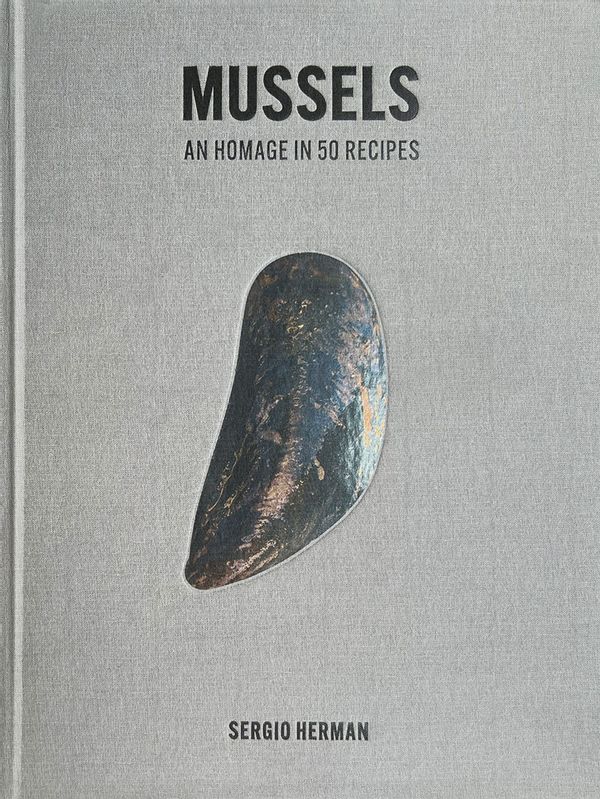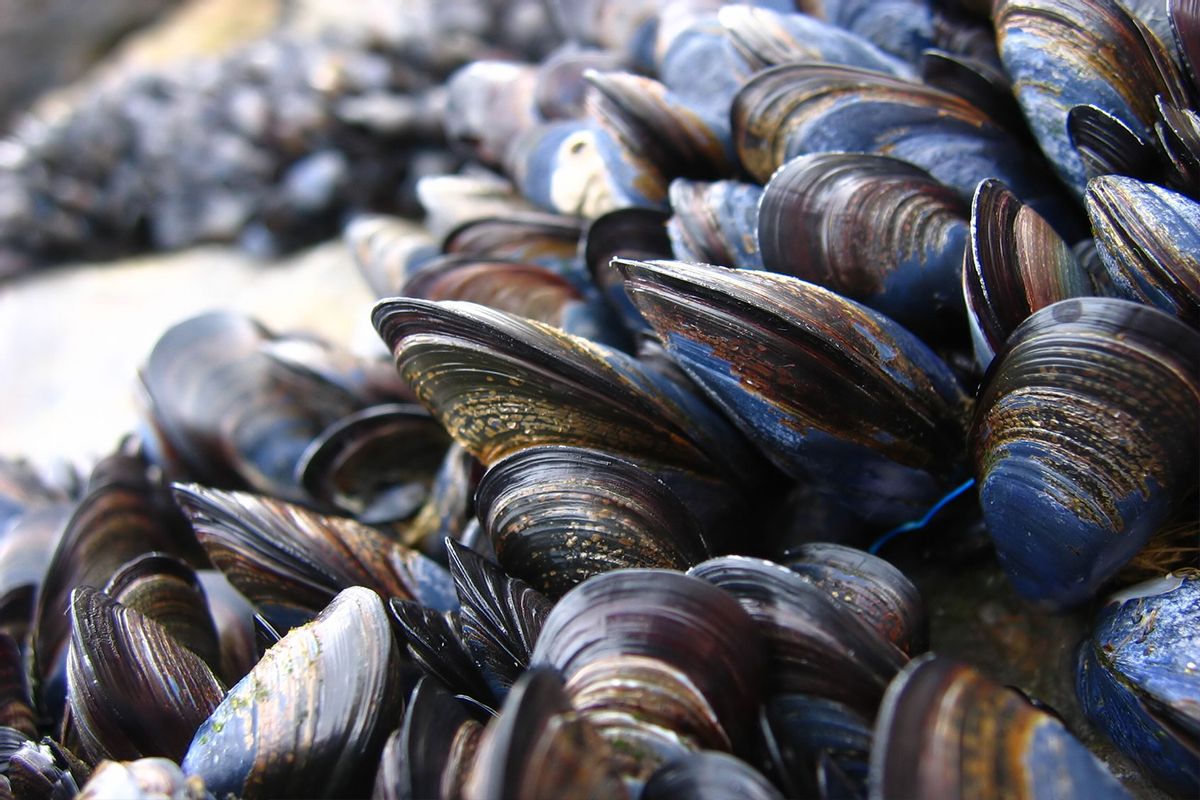When Sergio Herman was growing up, escaping mussels was almost out of the question.
The Michelin-starred chef was born and bred in Oud Sluis, the now-defunct but world-renowned seafood restaurant situated right on the Oosterschelde estuary in the Netherlands; Herman’s parents, Ronnie and Ans, took over the restaurant in the sixties and soon earned a reputation for delectable mussels.
“From my earliest memories, our home was filled with the bustling atmosphere of a restaurant open six days a week,” Herman told me. “The constant activity, people working, and, oh, the smell – that's the most vivid memory. The aroma of mussels simmering with garlic, onions, and celery permeated everything, even our skin."
Despite, or perhaps because of, his childhood, Herman made a commitment to himself to never work with mussels. Now, decades later, he is publishing, “Mussels: An Homage in 50 Recipes,” a cookbook that also doubles as an ode to the simple bivalve and, as Herman puts it, “a moment when I reconciled with these exquisite creatures.”
Though, as Herman tells it, once he got into the restaurant industry as a teenager, falling in love with mussels was really inevitable. He spent some time working with Dutch chef Cas Spijkers at his then two Michelin-starred restaurant De Swaen, as well as doing a stint at El Bulli, but when he turned 21, his father passed the Oud Sluis baton to him. That’s when he realized he "couldn't resist the allure and variety” of mussels, eventually endeavoring to gain “a deep understanding of why my parents dedicated their lives to it."
 Mussels An Homage In 50 Recipes by Sergio Herman (Photo courtesy of Tra Publishing/Simon & Schuster)
Mussels An Homage In 50 Recipes by Sergio Herman (Photo courtesy of Tra Publishing/Simon & Schuster)
His book, which was released in November from Tra Publishing, chronicles this journey through a series of recipes and anecdotes. It becomes quickly apparent — both in reading the book and in speaking with Herman — that he has very definitive opinions on the ways to approach cooking them. For Herman, a raw mussel is pristine.
"I learned to eat mussels in its purest form in France, on the many road trips that my parents took to the great restaurants of those days, and where I got the spark that ignited my ambition,” Herman said. “Moules Parquées [as they] are called, just a pure, simple, and raw preparation with a little squeeze of a lemon. To keep the meat of the mussel intact you need quite some skills to open them because you don’t want to hurt them.”
Want more great food writing and recipes? Subscribe to Salon Food's newsletter, The Bite.
He continued: “There’s no masking anything, just pure freshness from the sea.”
Herman compares the taste of a raw mussel — "like a tsunami in the mouth, deep and briny and incomparable to anything else” — to that of a cooked mussel, which is “full, sweet and deep.” The book contains recipes for both. Some of these are devastatingly simple, like basic steamed mussels.
“I can't think of any other dish that is faster and more flavorful than steamed mussels,” Herman said. “When you have the vegetables peeled, cut, and sliced then the preparation will take you even less than five minutes!"
Herman is also a big fan of what he calls “the juice,” or the leftover cooking liquid that comes with cooking mussels. ". . . do NOT throw away the liquid. NEVER. Keep it because there is nothing else that comes close to a better base for a sauce than this juice. You can freeze it for later when you make a sauce for fish, scale- and shellfish, a true and honest powerbomb!"
When I asked Herman about some of the more imaginative, unique offerings in the cookbook, like mussels Cannelloni or mussels bearnaise — and one particular cooked dish that stood out to me which was essentially a tiny, pan-fried mussel cutlet — he responded: "Once I understood how to handle this specific product, when I knew everything about it’s season and which method brings the best out of them, I simply cannot go wrong with this beautiful product. The product is leading me."
No matter how you're preparing them, though, Herman warns that the "key to preparing mussels is not to cook them too long."
We need your help to stay independent
Perhaps it’s only fitting then that cooking with mussels tends to lead Herman back home. His favorite method, which he "holds dear," is his father's recipe that he calls Ronnie Herman's mussels in white sauce à la crème.
"This is an emotional dish because it brought me and my family everything we have and it led the Sergio Herman Group to where we are today,” Herman said. “It all stems from the time that people were lining up for restaurant Oud Sluis to have a taste of the simple, but extremely flavorful preparation with garlic, butter, thyme and a little bit of cream. My father served them with crispy fries and mustard mayonnaise."
Herman is confident that his father would be happy with his adoration for the mollusk, now chronicled in this beautiful cookbook.
"Regrettably, I never had the chance to share this revelation with my dad, but I'm confident he smiles down at me from above,” he said.



Shares